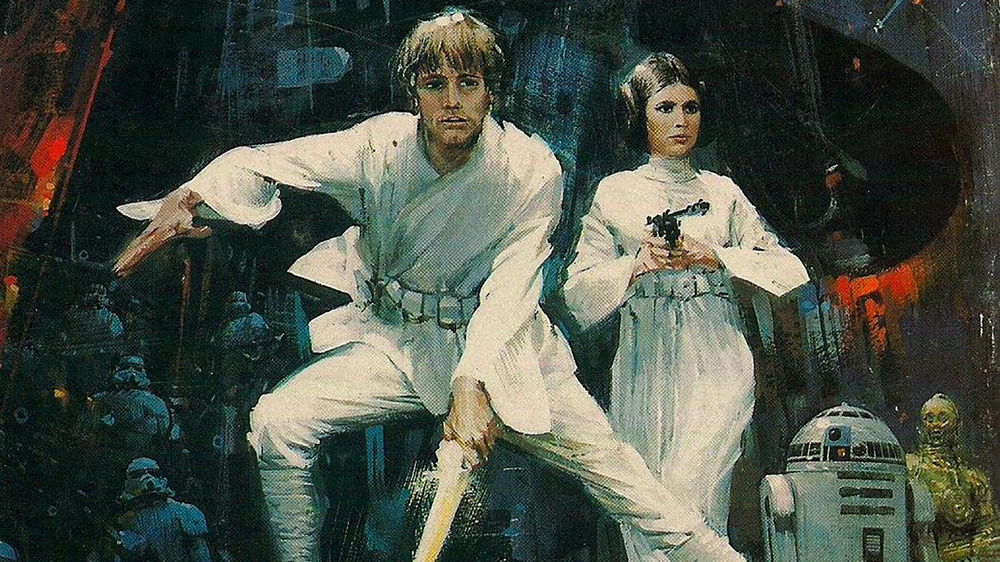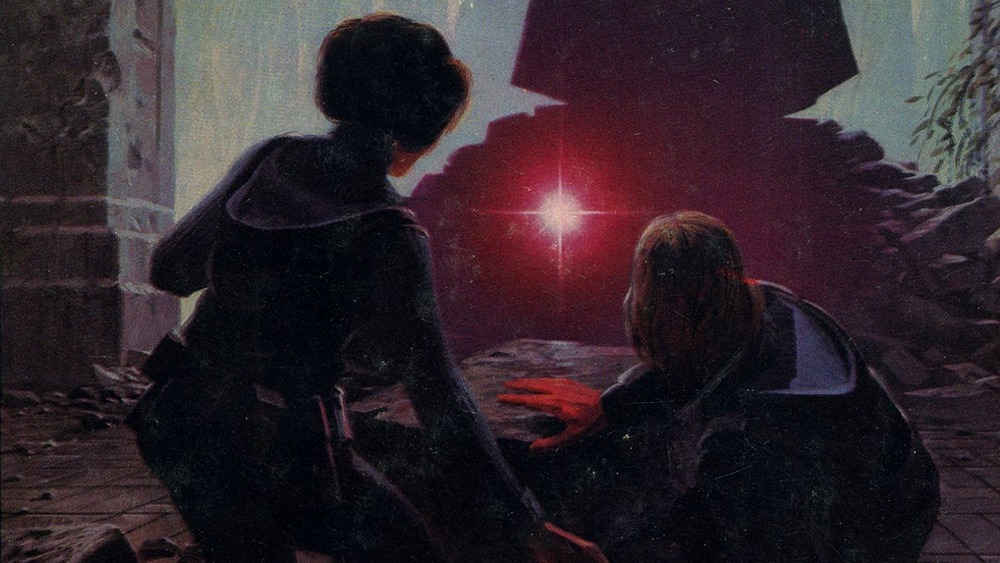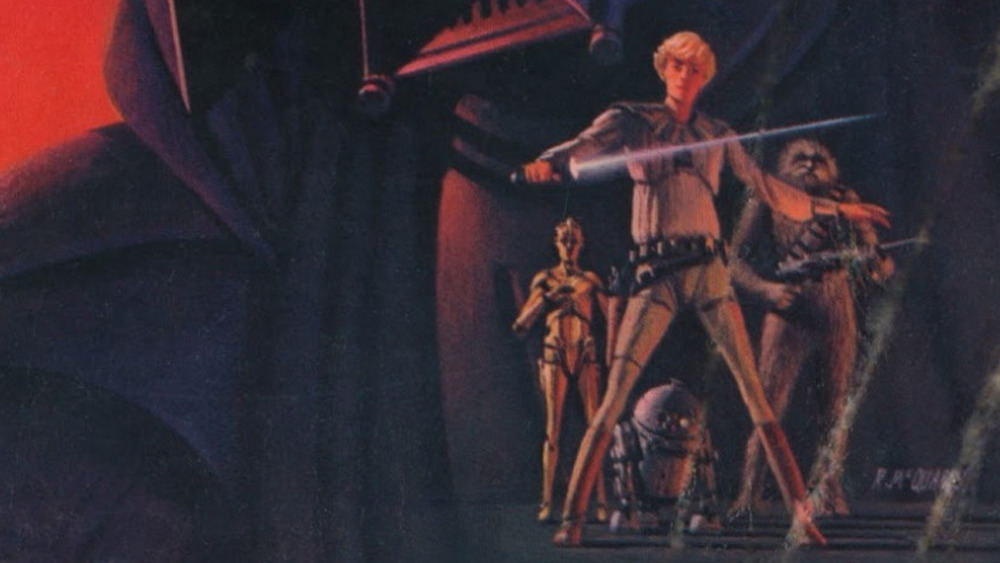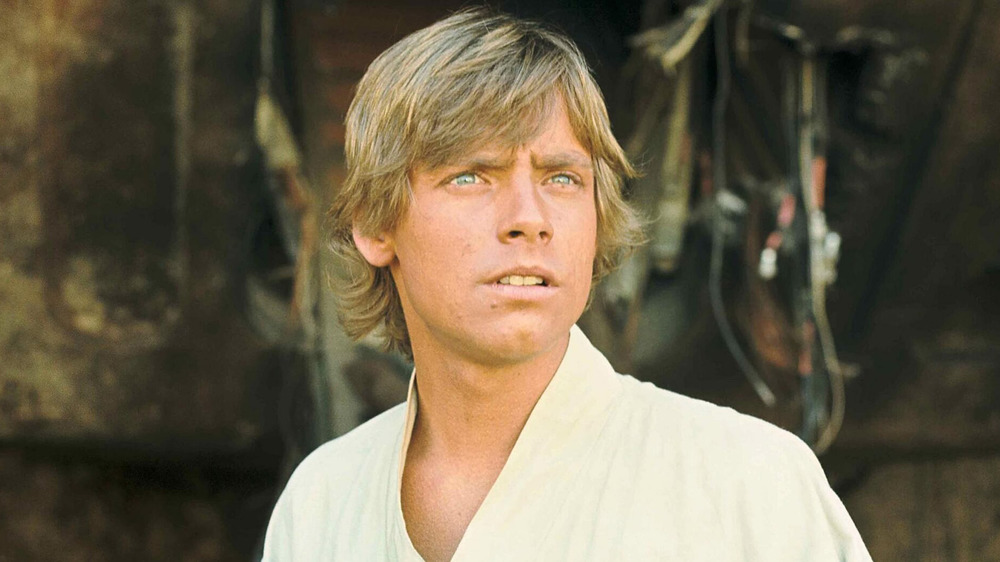The Star Wars Controversy That Has Fans Fuming At Disney
In a dispute that could have wide-ranging copyright implications, a science-fiction legend has come forward to state that Disney is refusing to pay him royalties he's owed for novels to which the company acquired the rights.
Alan Dean Foster is the author of a multitude of original novels and film novelizations, as well as an experienced franchise hand. He wrote Star Wars: From the Adventures of Luke Skywalker, the novelization of George Lucas' 1977 film A New Hope (which was credited to Lucas as the author), as well as its 1978 sequel novel, Splinter of the Mind's Eye. Most recently in the Star Wars universe, Foster penned the novelization of 2015's The Force Awakens. He has also tackled the novelizations for Alien, Aliens, Alien 3, Alien: Covenant, Transformers, Transformers: Revenge of the Fallen, Star Trek, Star Trek: Into Darkness, Terminator Salvation, and more.
Disney now owns the rights to Foster's Star Wars novelizations From the Adventures of Luke Skywalker and Splinter of the Mind's Eye, as well as to his Alien, Aliens, and Alien 3 novelizations, as part of the company's purchases of Lucasfilm and 20th Century Fox. On November 18, 2020, Foster and the Science Fiction & Fantasy Writers of America (SFWA), a non-profit writer's organization, released a statement claiming that Disney has not been paying him royalties for these works, despite the books' continuing availability in print and/or e-book form.
Going public with Alan Dean Foster's grievance is 'unprecedented'
According to the statement, in 2019, Foster contacted the Grievance Committee of the SFWA, which typically reaches out to the publisher after the author's attempts have been rebuffed as a middle step before formal legal action is brought. Typically, in a successful case, the dispute is resolved anonymously for both the author and publisher. But the process apparently broke down with Disney, leading Foster and the SFWA to take his complaint public in what SFWA president Mary Robinette Kowal called an "unprecedented" step.
Foster accused Disney of ignoring communications from the SFWA, his agents, and his lawyers, and of asking him to sign a non-disclosure agreement before even entering into discussion with its representatives. He wrote in his statement, "I know this is what gargantuan corporations often do. Ignore requests and inquiries hoping the petitioner will simply go away. Or possibly die. But I'm still here, and I am still entitled to what you owe me. Including not to be ignored, just because I'm only one lone writer. How many other writers and artists out there are you similarly ignoring?"
Foster explained that the money is important to him because of his and his wife's ongoing medical costs, but he emphasized that he's not asking for charity; it's money that he's owed for the work he's done that Disney is allegedly refusing to pay.
"When one company buys another, they acquire its liabilities as well as its assets," he wrote. "You're certainly reaping the benefits of the assets. I'd very much like my minuscule (though it's not small to me) share."
The ramifications of Disney's legal argument
The matter at hand goes deeper than one author and his royalties, according to Kowal. Disney's legal strategy in the dispute could have drastic repercussions to how copyright law works in the United States.
"Disney's argument is that they have purchased the rights but not the obligations of the contract," Kowal wrote. "In other words, they believe they have the right to publish work, but are not obligated to pay the writer no matter what the contract says."
She gives the example that if this theory were allowed to take hold, all a company would have to do to evade payment of royalties or other bonuses would be to sell the contract to a sister company, which would take control of the income but leave all the expenses behind.
Fans are flocking to the #DisneyMustPay hashtag to show support for Alan Dean Foster
Twitter users took to using the hashtag #DisneyMustPay to show their support for Foster and to express outrage at Disney.
In a thread about the case, author Cory Doctorow wrote, "Alan Dean Foster is an sf legend – a writer who produced a shelf of original novels but also made a reputation novelizing movies and TV from Star Wars to Aliens, turning out books that transcended quickie adaptations, becoming beloved bestsellers in their own right. [...] Foster's case is a gross injustice. He has cancer and his wife is ill. He wrote these books, Disney bought them. They're making money from them. They owe him money. Period."
Hugo Award-winner N.K. Jemisin tweeted that Disney's treatment of someone who helped make those properties beloved was "grotesque." Meanwhile, author Joanne M. Harris wrote on Twitter, "WTF, Disney. Acquiring the rights to a book means having to pay the writer. #DisneyMustPay."
Various Star Wars fans tweeted things like "#DisneyMustPay, #AlanDeanFoster the OG Star Wars writer cmon Greed Mouse," and "#DearMickey, I remember you also didn't pay the writers and creators of the original animated version of Aladdin when you basically took their creations for that bleh live-action version. Now you're doing the same thing to Alan Dean Foster. #DisneyMustPay." Another tweeted, "This is theft, pure and simple. How many other authors are being abused by @Disney in this fashion? #DearMickey #DisneyMustPay."
The SFWA post encouraged Disney's representatives to reach out and begin to resolve the matter, and asked writers experiencing similar problems with Disney or other companies to reach out to them. It remains to be seen what will come of this situation. Stay tuned to Looper for future updates.



